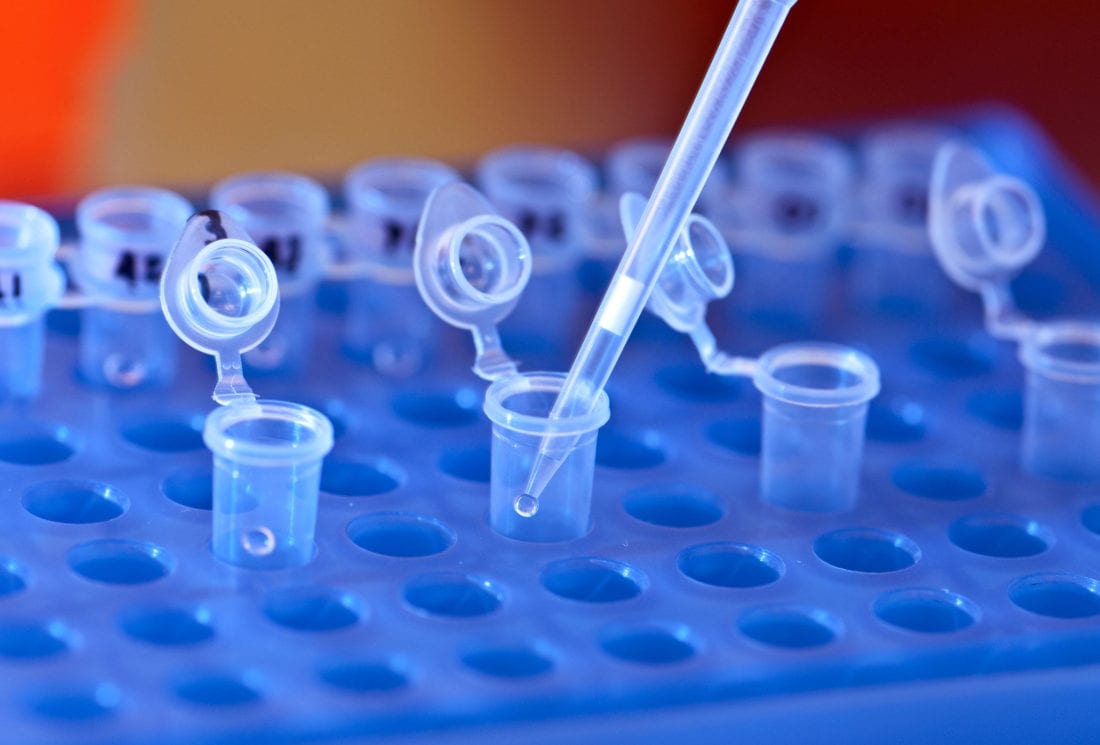The life sciences have made a strong showing in the Greater Philadelphia region this year, as local companies raked in a record $777 million in venture capital in the first half of 2021 alone.
Add it to the tally: A University of Pennsylvania spinout has raised a $50 million Series A to advance its gene editing technology.
iECURE’s tech, developed in the lab of Dr. James Wilson within Penn’s R&D-focused Gene Therapy Program, deals with the “mutation-agnostic in vivo insertion of healthy copies of disease-causing genes,” the company said in a press release. Its initial focus is on liver disorders.
The round was led by Versant Ventures and OrbiMed Advisors. iECURE works in partnership with the Gene Therapy Program, and the university and Wilson both hold equity in the company.
“Through our foundational collaboration with Penn, we are gaining access to a comprehensive, liver-focused, in vivo gene editing program that Dr. Wilson and his team have been developing in his labs for several years,” iECURE CEO Joseph Truitt said. “We are excited to partner with Penn to develop potentially groundbreaking treatments for patients suffering from debilitating disorders of the liver.”
Truitt told the Philadelphia Business Journal that iECURE is hiring, and that he expects the team to expand to between 30 and 50 employees by the end of summer 2022.
So, what is gene editing?
Dr. Eric Kmiec, the director of the ChristianaCare Gene Editing Institute in Newark, Delaware, told Technical.ly in December that gene editing is a form of genetic medicine with the goal of correcting DNA mutations that lead to inherited disorders or cancer. Diseases such as sickle cell disease, cystic fibrosis and Pompe’s disease have been the early targets for clinical trials. In particular, the sickle cell disease trials going on have shown great promise.
It can also be looked at as a “genetic spellchecker,” he said: Chromosomes are like the words in a sentence, and gene editing can help correct those words to make that sentence coherent, or in this case, healthy without the mutant or misspelled gene in the chromosome.
In relevant recent gene editing news, Kmiec is part of a team that developed CRISPR in a Box in 2020 as a laboratory exercise for high school and college students to educate them about the gene editing therapy. The team also recently launched the “CRISPR in the Classroom” series, a teaching tool to help spread information about the CRISPR and its impact on sickle cell disease. You can watch it on DETVch.com.
Before you go...
Please consider supporting Technical.ly to keep our independent journalism strong. Unlike most business-focused media outlets, we don’t have a paywall. Instead, we count on your personal and organizational support.
3 ways to support our work:- Contribute to the Journalism Fund. Charitable giving ensures our information remains free and accessible for residents to discover workforce programs and entrepreneurship pathways. This includes philanthropic grants and individual tax-deductible donations from readers like you.
- Use our Preferred Partners. Our directory of vetted providers offers high-quality recommendations for services our readers need, and each referral supports our journalism.
- Use our services. If you need entrepreneurs and tech leaders to buy your services, are seeking technologists to hire or want more professionals to know about your ecosystem, Technical.ly has the biggest and most engaged audience in the mid-Atlantic. We help companies tell their stories and answer big questions to meet and serve our community.
Join our growing Slack community
Join 5,000 tech professionals and entrepreneurs in our community Slack today!

The person charged in the UnitedHealthcare CEO shooting had a ton of tech connections

From rejection to innovation: How I built a tool to beat AI hiring algorithms at their own game

Where are the country’s most vibrant tech and startup communities?



